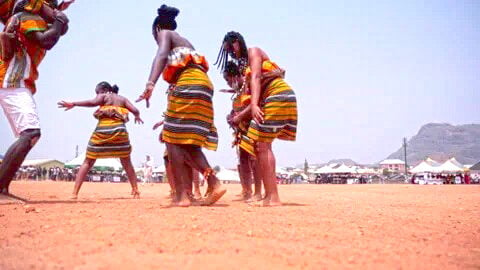History rarely moves in straight lines. For nations within nations, its rhythm is often cyclical—moments of grandeur, followed by decline, and then the possibility of renewal. The Igala people, heirs of a once-expansive kingdom that straddled the confluence of the Niger and Benue rivers, know this well. For centuries, their empire traded, negotiated, and warred with the Igbo, Nupe, Jukun and Benin. At its height, Igala influence reached deep into the cultural bloodstream of central Nigeria. But with the onrush of colonial disruption, shifting borders, and the centrifugal forces of post-independence politics, that influence frayed. Today, a new generation of Igala leaders insists that the tide can turn again.
At the heart of this revival is the Ukomu Igala Organization, a socio-cultural body that has positioned itself as a forum for unity and advocacy. On September 6th, 2025, it will inaugurate its National Executive Council in Abuja. To the uninitiated, the ceremony may appear like another ethnic association’s gathering, heavy on rhetoric but light on substance. Yet for many Igala, the event carries deeper resonance: it is being framed as the beginning of a “new Igala Renaissance.”
The phrase is deliberate. Renaissance suggests not merely an organisation or a meeting but a rebirth—a conscious attempt to recover fragments of history, culture and dignity, and to weave them into a coherent strategy for the future. In this case, the renaissance is being driven by figures who embody the professional and generational breadth of Igala society. Chief Jibrin S. Okutepa, a senior advocate of Nigeria, chairs the inauguration committee. His reputation as a fearless courtroom advocate lends the movement both credibility and gravitas. Alongside him is Dr. Gabriel Idachaba, the chairman of the board of trustees, who frames the project in terms of stewardship and inclusivity. Dr. Kashim Akor, with his technocratic background, adds an institutional sensibility, while Hajia Salamatu Umar Eluma Baiwa represents the rising prominence of women in cultural and civic leadership.
The choice of Abuja’s NBA House as the venue is telling. It is a symbolic nod to law, order, and institutional legitimacy—qualities often lacking in Nigeria’s turbulent socio-political space. For the Igala elite, the gathering is an opportunity to signal seriousness: this is not to be dismissed as another nostalgic club of elders, but as a platform capable of articulating demands, mobilising resources, and inspiring youth.
The timing is also propitious. Nigeria itself is in flux. Economic hardship, ethnic contestations, and widespread disillusionment with politics have pushed many groups back into cultural cocoons. Some embrace such retreats as escape. But others, like Ukomu Igala, see them as opportunities for redefinition. For the Igala—who remain Nigeria’s ninth-largest ethnic group but often feel sidelined in national calculations—this is a chance to rediscover their collective muscle.
Yet renaissance is not guaranteed. The Igala nation, like many others, suffers from the twin afflictions of Nigeria’s postcolonial order: fragmentation and forgetfulness. Fragmentation arises from the endless quarrels of politics—between elites, between districts, between the diaspora and those at home. Forgetfulness is more insidious: it is the quiet erosion of language, memory, and heritage in a world where modernity often means mimicry rather than originality. To overcome both, the Ukomu Igala must move beyond the familiar platitudes of unity and progress.
What might that look like? First, a renaissance of culture must be practical, not merely ceremonial. Preserving Igala language, festivals, and folklore is vital, but equally important is embedding them in education, media, and popular culture. Second, empowerment of youth cannot be reduced to scholarships or speeches. It requires deliberate programmes that connect Igala’s vast diaspora networks with opportunities at home, from entrepreneurship to technology. Third, advocacy for socio-economic advancement must confront hard realities: Kogi State, where Igala form a plurality, is rich in natural resources but poor in infrastructure and investment. To press for change is to press for better governance, not only from Abuja but also from Lokoja, the state capital.
Leadership personalities will matter. Chief Okutepa’s voice carries weight precisely because he has shown a willingness to challenge authority, even within his own state. Dr. Idachaba’s framing of the moment as a “call to service” reflects an older philosophy of leadership as stewardship. And Hajia Baiwa’s presence signals that any renaissance excluding women would be hollow. But personalities alone cannot sustain movements. The Igala Renaissance will require institutions—research centres, think tanks, youth forums—that can outlast individual ambitions.
There are historical lessons too. The Italian Renaissance, often cited as a golden metaphor, succeeded not because Florence or Venice pined for their past, but because they invested in new ways of thinking, creating, and organising. If the Igala Renaissance is to avoid being trapped in nostalgia, it must similarly pivot towards innovation. That means cultivating Igala voices in literature, film, and music; promoting civic literacy and democratic participation; and ensuring that cultural revival translates into material improvement in people’s lives.
The philosophical stakes are clear. Identity without renewal becomes stagnation. Progress without memory becomes rootlessness. The Igala must pursue a synthesis: memory with movement, progress with roots. If they succeed, they may once again transform the confluence region from a metaphor of missed opportunity into a model of cultural strength and civic engagement. If they fail, the phrase “Igala Renaissance” will join the long list of Nigeria’s unfulfilled promises.
For now, though, optimism is justified. There is energy in the air, the kind that arises when a people remember who they are and imagine who they might yet become. The inauguration on September 6th is but the overture. The symphony of renaissance will depend on what follows: whether speeches turn into programmes, whether ideals turn into institutions, and whether rhetoric turns into results.
As the Igala proverb reminds, a river that forgets its source will dry. But one that returns to its source will find renewal. Ukomu Igala has chosen its course. The river is flowing back to the confluence. The question is whether it will gather enough force to carve out a future worthy of its past.





